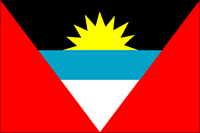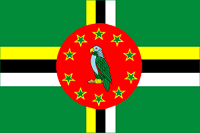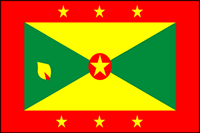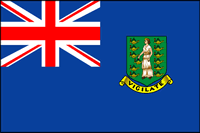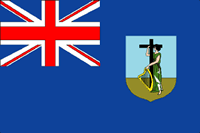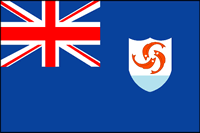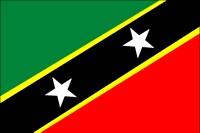Direct Use of Geothermal Energy Project
Advancing Geothermal Energy in the Eastern Caribbean for Economic Development and Resilience
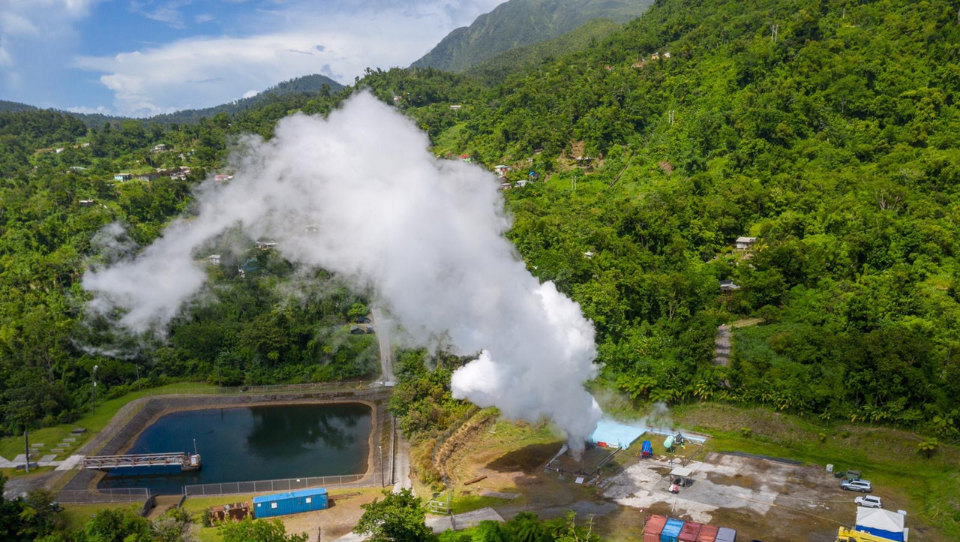
OECS Member States are all highly dependent on imported fossil fuel to meet their energy needs. This imported energy has a huge economic impact due to high cost and volatility of the fossil fuel industry which, in turn negatively impacts the competitiveness of the various sectors in the region. In an effort to address this challenge, the OECS is making a concerted effort to diversify its energy mix, reduce energy imports and build energy resilience.
The OECS has strong potential for the development of renewable energy including, solar, wind and geothermal energy in the Eastern Caribbean. The successful development of its geothermal resources would transform the economies of this region by delivering affordable electricity and other economic benefits. Eight OECS Member States are currently developing geothermal energy in the Eastern Caribbean, but the benefits could redound to the entire OECS region.
The OECS Commission is currently actively working on supporting Member States with geothermal development. Interventions are being undertaken in collaboration with a number of partners and the areas of support include research, capacity building, public awareness and knowledge management.
Developing non electricity generating uses of geothermal energy in the Eastern Caribbean
The Direct Use of Geothermal Energy Project is a US$115,000 project co-funded by the Government of New Zealand. This project mainly aims to identify and promote investment opportunities for direct uses of geothermal energy in OECS.
The project was launched in September 2020 and should be completed by the end of July 2022.
In 2020, the OECS Commission partnered with the Government of New Zealand to deliver a study on possible opportunities for the direct use of geothermal energy outside of electricity generation across OECS countries. Direct use of geothermal resources can be done in conjunction with geothermal power plants or independently as standalone projects. Direct use of geothermal resources opens up the opportunity to develop the region’s geothermal resources to not only contribute to the renewable energy sector, but to support the creation of new industries and the expansion of existing ones. Non-electricity generating uses of geothermal resources have been growing globally and include areas such as drying, cool storage, refrigeration, food processing, distillation and hot spas. Geothermal energy is already being used for tourism in Member States such as at the Sulphur Springs in Saint Lucia, but there is scope for agriculture, food production and other industrial applications
This recent cooperation between the OECS Commission and the Government of New Zealand will entail an overview of existing geothermal resource applications globally that demonstrate the breadth of potential applications relevant to the Caribbean context. This will help identify the best approach for the region and the most suitable applications in specific geothermal localities given the local context and opportunities for implementation. An important part of the study will examine the current knowledge of the geothermal resources in the OECS, their level of development and application for non-electricity generation purposes. The output will include brief case studies highlighting direct use projects in commercial operation and their critical success factors for the region. The ultimate goal is to identify and promote investment opportunities for direct uses of geothermal energy in OECS.
Project Status and Accomplishments to Date
Beneficiary Countries:
The study in the area of geothermal energy in the Eastern Caribbean will benefit all the OECS Member States who have significant geothermal resources. However, the study will focus on particular Member States, namely: the Commonwealth of Dominica, Grenada, Montserrat, Saint Kitts and Nevis, Saint Lucia and Saint Vincent and the Grenadines.
Goals
The project pursues three main objectives including:
- providing a resource for OECS policy-makers on opportunities for the use of geothermal energy (non-electricity generation),
- conceptualizing pilot projects and identifying the resources required for their implementation,
- selecting a project(s) to progress and garner support from donors and other parties.
Activities
The activities below will be undertaken as part of the study on the development of geothermal energy in the Eastern Caribbean include:
- The overview of direct uses of geothermal energy
- The review of geothermal resource data in the OECS
- The identification of key economic opportunities to utilize geothermal resources for non-electricity generating uses in OECS
- The estimate of the capital cost of development along with the identification of preliminary near-term investment target(s)
- The overview of enabling framework for a project including policy, financial, legislative incentives, and barriers
- The dissemination of information and the implementation of an awareness campaign targeted at public, private, international, and local stakeholders
- The development of a high-level strategy to pursue non-electricity use of geothermal resources in the OECS
Resources on Sustainable Energy in the Eastern Caribbean
Access more resources on Sustainable Energy in the Eastern Caribbean via the OECS Library.
Partners of the project
The OECS, through the Sustainable Energy Unit, partnered with the Government of New Zealand to develop the direct use of geothermal energy in the Eastern Caribbean.

Contact the OECS Sustainable Energy Unit
Judith Ephraim,
Programme Director- Sustainable Energy
Tel: +1 (758) 455-6350
Learn more on Sustainable Energy in the Eastern Caribbean
The OECS is working in close collaboration with all the Ministries of its Member States on all matters related to sustainable energy in the Eastern Caribbean.
